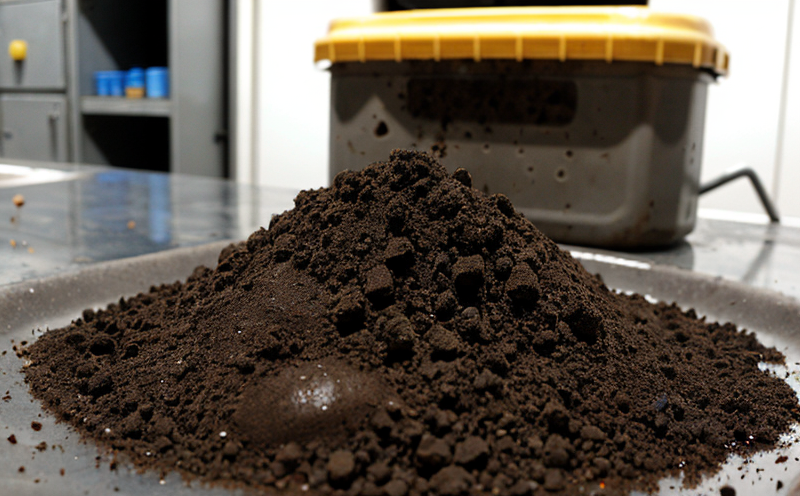DIN 51790 Residues in Solid Fuels Analysis
The DIN 51790 standard provides a comprehensive approach to analyzing residues and contaminants in solid fuels. This service is crucial for ensuring the quality of fuel products used in various industrial applications, including power generation, heating systems, and cement production. Compliance with this standard ensures that fuels meet specified purity levels, thereby enhancing operational efficiency and reducing environmental impact.
Residues in solid fuels can include ash content, volatile matter, and other components that may affect the performance of fuel-burning equipment. The analysis helps stakeholders understand the composition of their fuel sources, identify potential impurities, and ensure consistent quality across batches. This service is particularly important for industries reliant on solid fuels to meet stringent regulatory requirements.
The DIN 51790 standard covers a wide range of solid fuels, including coal, lignite, peat, and biomass products. It provides detailed procedures for sample preparation, testing methods, and the acceptance criteria for various parameters. The analysis is conducted using advanced instrumental techniques to ensure accurate results.
For industries that rely on solid fuels, compliance with DIN 51790 ensures regulatory adherence and enhances product reliability. This service supports quality control by offering precise residue analysis, which can help in optimizing fuel efficiency and reducing waste. By adhering to this standard, businesses can also enhance their reputation for delivering high-quality products.
The process involves several key steps:
- Sample collection from the source
- Sample preparation according to specified protocols
- Analysis using appropriate instruments
- Evaluation of results against DIN 51790 criteria
- Reporting findings and recommendations for improvement
The use of this standard is essential in maintaining the integrity of solid fuel products, ensuring they meet the required standards for quality and purity. This service supports industries by providing detailed reports that help them make informed decisions about their fuel sources.
| Parameter | Description |
|---|---|
| Ash Content | The percentage of incombustible matter remaining after the fuel has been combusted under specified conditions. This parameter is crucial for assessing the purity and potential impact on equipment. |
| Volatile Matter | The portion of the fuel that volatilizes during combustion, which can affect fuel efficiency and emissions. |
| Fixed Carbon | The remaining carbon content after volatile matter has been removed. This parameter helps in understanding the energy density of the fuel. |
By adhering to DIN 51790, industries can ensure that their solid fuels meet stringent quality standards, which is critical for maintaining operational efficiency and environmental compliance.
Applied Standards
- DIN 51790-1: Determination of ash content in solid fuels
- DIN 51790-2: Determination of volatile matter in solid fuels
- DIN 51790-3: Determination of fixed carbon in solid fuels
The DIN standards provide a robust framework for analyzing residues and contaminants in solid fuels. These standards are widely recognized and used globally, ensuring consistency and accuracy in residue analysis.
Benefits
- Precise Analysis: Accurate measurement of ash content, volatile matter, and fixed carbon ensures high-quality fuel products.
- Compliance: Meeting DIN 51790 criteria helps industries comply with regulatory requirements.
- Efficiency: Precisely identifying residues can optimize fuel usage and reduce waste.
- Environmental Impact: Minimizing contaminants reduces harmful emissions and environmental impact.
The service not only supports regulatory compliance but also contributes to sustainable practices by ensuring the quality of solid fuels. This, in turn, enhances operational efficiency and reduces costs associated with fuel-related issues.
Customer Impact and Satisfaction
- Informed Decision-Making: Detailed reports based on DIN 51790 analysis empower stakeholders to make informed decisions about their fuel sources.
- Confidence in Quality: Compliance with international standards instills confidence among customers, suppliers, and regulatory bodies.
- Sustainable Practices: By adhering to strict residue limits, industries can promote sustainable practices and contribute to a cleaner environment.
The service has been well-received by quality managers, compliance officers, R&D engineers, and procurement professionals. Feedback from these stakeholders highlights the importance of this service in maintaining high standards of fuel quality and purity.





